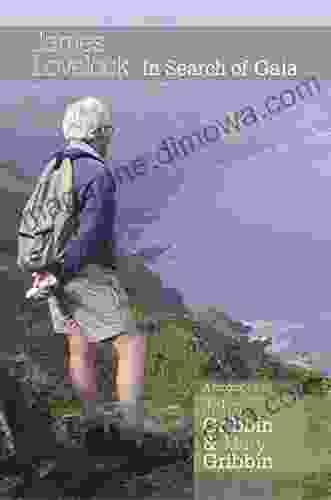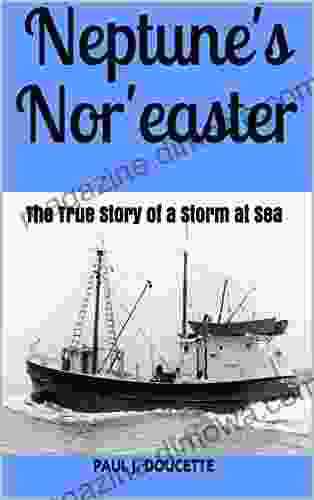James Lovelock: In Search of Gaia - Unveiling the Earth's Living System

Prologue: The Birth of a Revolutionary Idea
In the annals of scientific history, James Lovelock stands as a pioneering visionary whose groundbreaking work has irrevocably transformed our understanding of the Earth and its intricate relationship with life. His concept of Gaia, the idea that the Earth functions as a self-regulating, living system, has had a profound impact on fields as diverse as environmentalism, climate change, and planetary science.
5 out of 5
| Language | : | English |
| File size | : | 9604 KB |
| Text-to-Speech | : | Enabled |
| Enhanced typesetting | : | Enabled |
| Word Wise | : | Enabled |
| Print length | : | 272 pages |
| Screen Reader | : | Supported |
James Lovelock: In Search of Gaia invites readers to embark on a captivating journey through the life and work of this extraordinary scientist. From his early forays into medicine and engineering to his groundbreaking discoveries in atmospheric chemistry, this book paints a vivid portrait of a man whose relentless curiosity and innovative thinking led him to unravel the secrets of our planet.
Chapter 1: The Chemical Fingerprint of Life
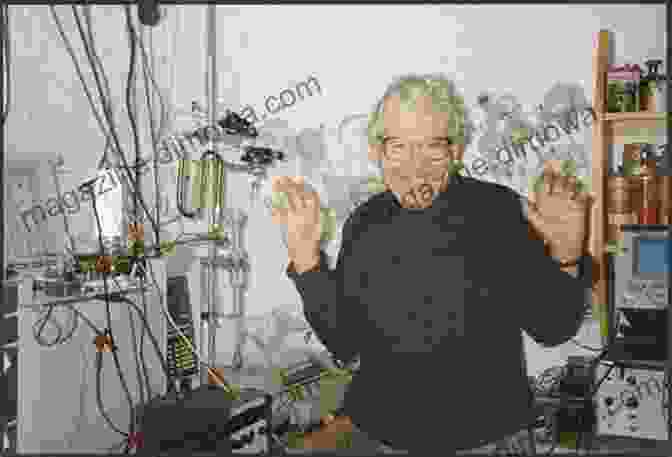
Lovelock's scientific odyssey began in the 1960s, when he was tasked with developing methods to detect life on Mars for NASA's Viking missions. Through meticulous analysis of the Martian atmosphere, he realized that its composition was strikingly different from that of Earth. This discrepancy led him to conclude that the absence of certain key gases, such as oxygen, methane, and nitrous oxide, implied the absence of life on the Red Planet.
However, it was Lovelock's subsequent analysis of Earth's atmosphere that would prove to be truly transformative. He discovered that the composition of our atmosphere is not only distinct from other planets but also remarkably stable over long periods of time. This stability, he argued, could not be explained by purely physical or chemical processes alone.
Chapter 2: The Gaia Hypothesis
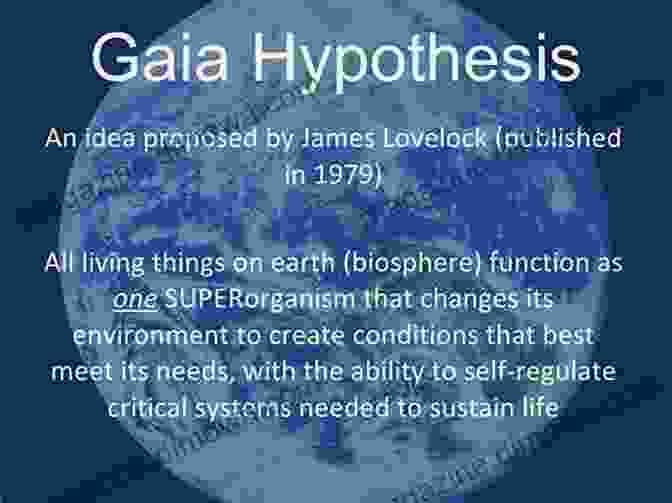
Lovelock's groundbreaking insight was that the Earth's atmosphere and biosphere are not separate entities but rather two parts of a single, self-regulating system. He coined the term "Gaia" to describe this living Earth system, where organisms interact with their environment to maintain the conditions necessary for their own survival.
The Gaia hypothesis challenged the prevailing scientific dogma of the time, which viewed the Earth as a passive, unchanging object. Lovelock argued that the biosphere actively shapes the physical environment, creating a feedback loop that ensures the planet's stability and habitability.
Chapter 3: Gaia's Defense Mechanisms
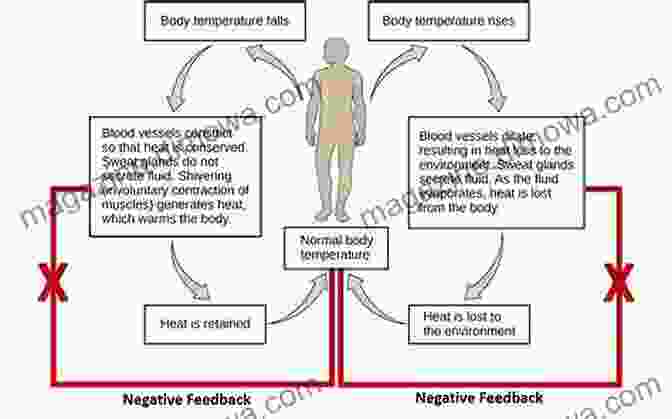
One of the most fascinating aspects of Gaia is its ability to respond to changes in the environment and maintain a state of dynamic balance. Lovelock identified a range of mechanisms through which Gaia operates, including:
- Temperature regulation: The biosphere plays a crucial role in regulating Earth's temperature through processes such as photosynthesis and the release of greenhouse gases.
- pH regulation: The oceans' pH is maintained within a narrow range that is essential for marine life. Marine organisms, in turn, influence the pH through processes such as the formation of coral reefs and the release of carbon dioxide.
- Atmospheric composition regulation: The biosphere influences the composition of Earth's atmosphere by producing and consuming gases such as oxygen, carbon dioxide, and methane.
These mechanisms, working in concert, ensure that Gaia remains habitable for life.
Chapter 4: Gaia and Climate Change
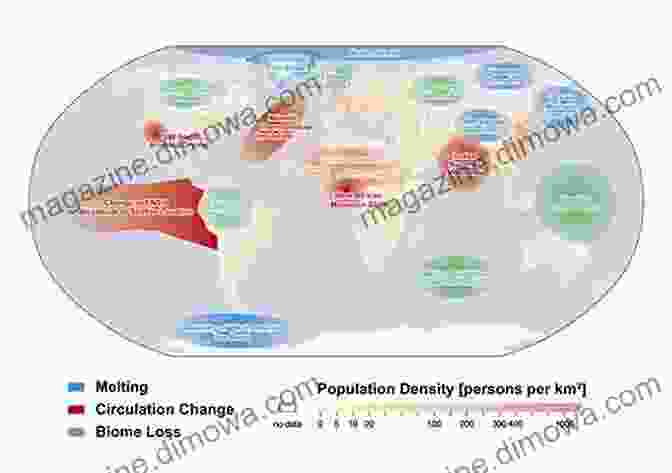
One of the most pressing challenges facing humanity today is climate change. Lovelock's Gaia hypothesis has important implications for understanding the potential impacts of climate change and the role of the biosphere in mitigating its effects.
Gaia's self-regulating nature suggests that the Earth system has the capacity to adapt to and mitigate environmental changes. However, there are potential tipping points beyond which Gaia's ability to maintain stability could be overwhelmed. Lovelock warns that human activities, such as the burning of fossil fuels and deforestation, could push Gaia into a state of disequilibrium, leading to potentially catastrophic consequences.
Chapter 5: The Legacy of James Lovelock

James Lovelock's scientific legacy extends far beyond his pioneering work on Gaia. He has been a vocal advocate for environmental conservation, urging humanity to take responsibility for the health of our planet. His writings and public lectures have inspired generations of scientists, environmentalists, and policy-makers.
James Lovelock: In Search of Gaia is more than just a scientific biography. It is a testament to the power of curiosity, innovation, and the human spirit's ability to unravel the mysteries of the natural world. By understanding Gaia, we gain a deeper appreciation for the fragility and resilience of our planet and the responsibility we have to protect it.
As Lovelock himself has said, "Gaia is not a static thing, but a dynamic system that is constantly adapting and changing. If we want to understand the future of our planet, we must understand Gaia."
James Lovelock: In Search of Gaia is a must-read for anyone who is interested in the history of science, the understanding of our planet, and the challenges of the future.
5 out of 5
| Language | : | English |
| File size | : | 9604 KB |
| Text-to-Speech | : | Enabled |
| Enhanced typesetting | : | Enabled |
| Word Wise | : | Enabled |
| Print length | : | 272 pages |
| Screen Reader | : | Supported |
Do you want to contribute by writing guest posts on this blog?
Please contact us and send us a resume of previous articles that you have written.
 Book
Book Novel
Novel Page
Page Chapter
Chapter Text
Text Story
Story Genre
Genre Reader
Reader Library
Library Paperback
Paperback E-book
E-book Magazine
Magazine Newspaper
Newspaper Paragraph
Paragraph Sentence
Sentence Bookmark
Bookmark Shelf
Shelf Glossary
Glossary Bibliography
Bibliography Foreword
Foreword Preface
Preface Synopsis
Synopsis Annotation
Annotation Footnote
Footnote Manuscript
Manuscript Scroll
Scroll Codex
Codex Tome
Tome Bestseller
Bestseller Classics
Classics Library card
Library card Narrative
Narrative Biography
Biography Autobiography
Autobiography Memoir
Memoir Reference
Reference Encyclopedia
Encyclopedia John Frohnmayer
John Frohnmayer Rusty Tugs
Rusty Tugs Joan Singleton
Joan Singleton Jim Maccracken
Jim Maccracken John B Conway
John B Conway Tim Parfitt
Tim Parfitt Judith Shapiro
Judith Shapiro Jodie Lynn Zdrok
Jodie Lynn Zdrok John Bailey
John Bailey Jo Piazza
Jo Piazza Katherine Mayo
Katherine Mayo Jenny Han
Jenny Han Shannon Kennedy
Shannon Kennedy Steve Tomlin
Steve Tomlin Lizzie Williams
Lizzie Williams John Brooke
John Brooke Jimmy Chang
Jimmy Chang John C Lamothe
John C Lamothe Misty Moncur
Misty Moncur John N Cole
John N Cole
Light bulbAdvertise smarter! Our strategic ad space ensures maximum exposure. Reserve your spot today!

 Vladimir NabokovMathematical Methods for Financial Markets: Your Essential Guide to Unlocking...
Vladimir NabokovMathematical Methods for Financial Markets: Your Essential Guide to Unlocking... Marcus BellFollow ·19.4k
Marcus BellFollow ·19.4k Ignacio HayesFollow ·14.6k
Ignacio HayesFollow ·14.6k Banana YoshimotoFollow ·8k
Banana YoshimotoFollow ·8k Wayne CarterFollow ·8k
Wayne CarterFollow ·8k Donovan CarterFollow ·16.2k
Donovan CarterFollow ·16.2k Floyd PowellFollow ·19.2k
Floyd PowellFollow ·19.2k Alexandre DumasFollow ·14.9k
Alexandre DumasFollow ·14.9k Edward ReedFollow ·12.4k
Edward ReedFollow ·12.4k

 Joshua Reed
Joshua ReedTake Your Marketing Business Into The Next Level
Are you ready to...
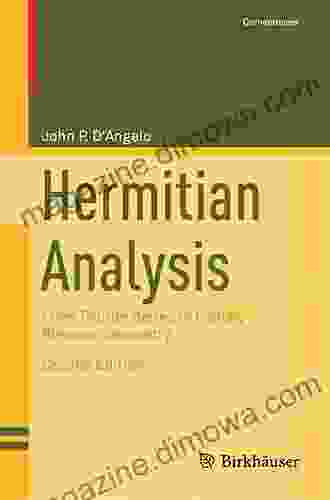
 Aaron Brooks
Aaron BrooksFrom Fourier to Cauchy-Riemann: Geometry Cornerstones
From Fourier to Cauchy-Riemann: Geometry...
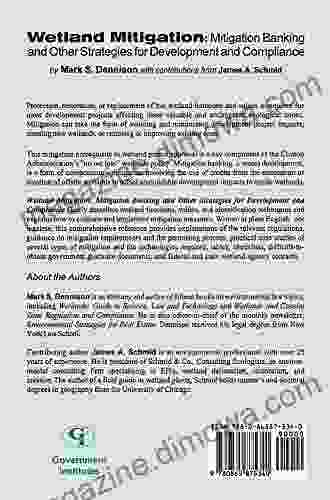
 Orson Scott Card
Orson Scott CardUnveiling the Art of Mitigation Banking: A Comprehensive...
In the intricate dance between...

 Victor Hugo
Victor HugoUnleash Your Creativity: A Journey Through the Enchanting...
Prepare to be captivated as we...
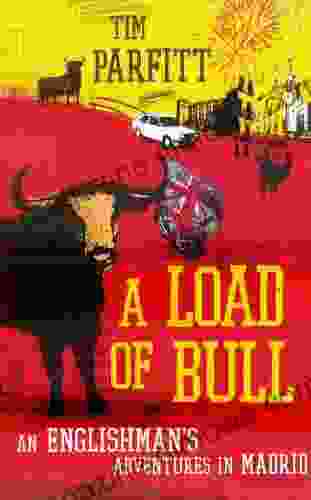
 Duncan Cox
Duncan CoxLoad of Bull: An Englishman's Adventures in Madrid
By Simon Bunce ...
5 out of 5
| Language | : | English |
| File size | : | 9604 KB |
| Text-to-Speech | : | Enabled |
| Enhanced typesetting | : | Enabled |
| Word Wise | : | Enabled |
| Print length | : | 272 pages |
| Screen Reader | : | Supported |


